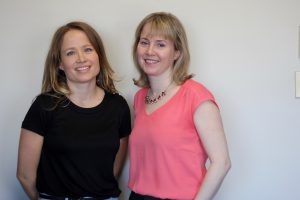L’accompagnement est la clé de voûte au succès d’une transformation réussie de votre école. Offrant un processus rigoureux, méthodique et flexible, nous partons du principe que chaque école est unique et qu’aucune ne part de zéro. Notre équipe personnalise la démarche en fonction de chaque environnement éducatif et de ses besoins pour que votre établissement devienne une école communautaire entrepreneuriale. L’école et sa communauté forment une alliance de sens pour, qu’ensemble, elles portent fièrement leur projet éducatif.
EUROPEAN AREA INTERESTED BY THE ECEC
The idea of an international community working for conscious entrepreneurial education makes its way East of the Atlantic
Last week from November 2nd to 7th, a seminar entitled Promoting Entrepreneurial education in Schools was held in Potsdam, very near from Berlin in Germany. It was a first seminar of this kind organized by the OECD as part of its new program Entrepreneurship 360. There, school principals, teachers and various representatives working at the primary, secondary, professional and even within national education ministries, from about 20 European countries were gathered. Guest speakers presented their most recent researches, of which one brings up the idea of creating a SCHOOL-COMMUNITY ECOSYSTEM in order to develop an entrepreneurial school (ES) in Europe. This research practically joins the vision and ideas promoted by the ECEC for several years. A European ES would thus have the mandate to contribute, progressively, to the emergence of an entrepreneurial culture in youth.
Each day, we heard testimonies referring to the numerous initiatives in educational entrepreneurship that teachers and school principals are leading with conviction and courage. Many of them claim to feel isolated in their schools, they perceive themselves as rare birds, as much in their regions than in their countries. Some governments are developing policies or are adopting discourses in favour of entrepreneurial education in schools, without thereby injecting funds to support the initiatives of the few schools that dare to venture there. Between the intention and the means put forward, there is sometimes a large gap. Structuring programs are for the most past inexistent. In Sweden and in Finland, things seem to be slightly different. For instance, school administrations and teachers are invited to get involved within national teams and to contribute to the elaboration of educational programs, reference frameworks and strategies facilitating the use of entrepreneurial methods in classrooms. Austria, for its part, established a ministerial structure that intends to research pedagogies and organizational models for its schools.
The wish expressed by many people attending this seminar was that several schools and a strong majority of teachers from these schools come to, by a voluntary process, choose a entrepreneurial pedagogy approach and apply it according to an established number of hours. Indeed, succeeding in developing a real entrepreneurial culture requires a sufficient annual pedagogical investment and that such contribution (pedagogical investment) continues over the entire course of schooling. This is not rocket science, this logics also applies for all school subjects. For example, we couldn’t conceive to learn in a satisfying way English, Maths, Human Sciences or Sciences after a few hours spread on a few days, a few weeks or a few months.
The idea that a true sharing community in conscious entrepreneurial education could be created appears extremely relevant, and it is urgent to take care of it. Firstly, to bring out of isolation several teachers and principals through networking. Then to facilitate the sharing of best practices and to foster the emergence of a competent accompanying service. Could the OIECEC, the OCDE, the European Commission and the actors involved in entrepreneurial education act together, thus reinventing the school, to contribute to the development of conscious entrepreneurial skills among young people? Such partnership would stimulate the participating nations and contribute to ensure the viable development for each.
RINO LÉVESQUE










0 Comment
Would you like to join the discussion? Feel free to contribute!